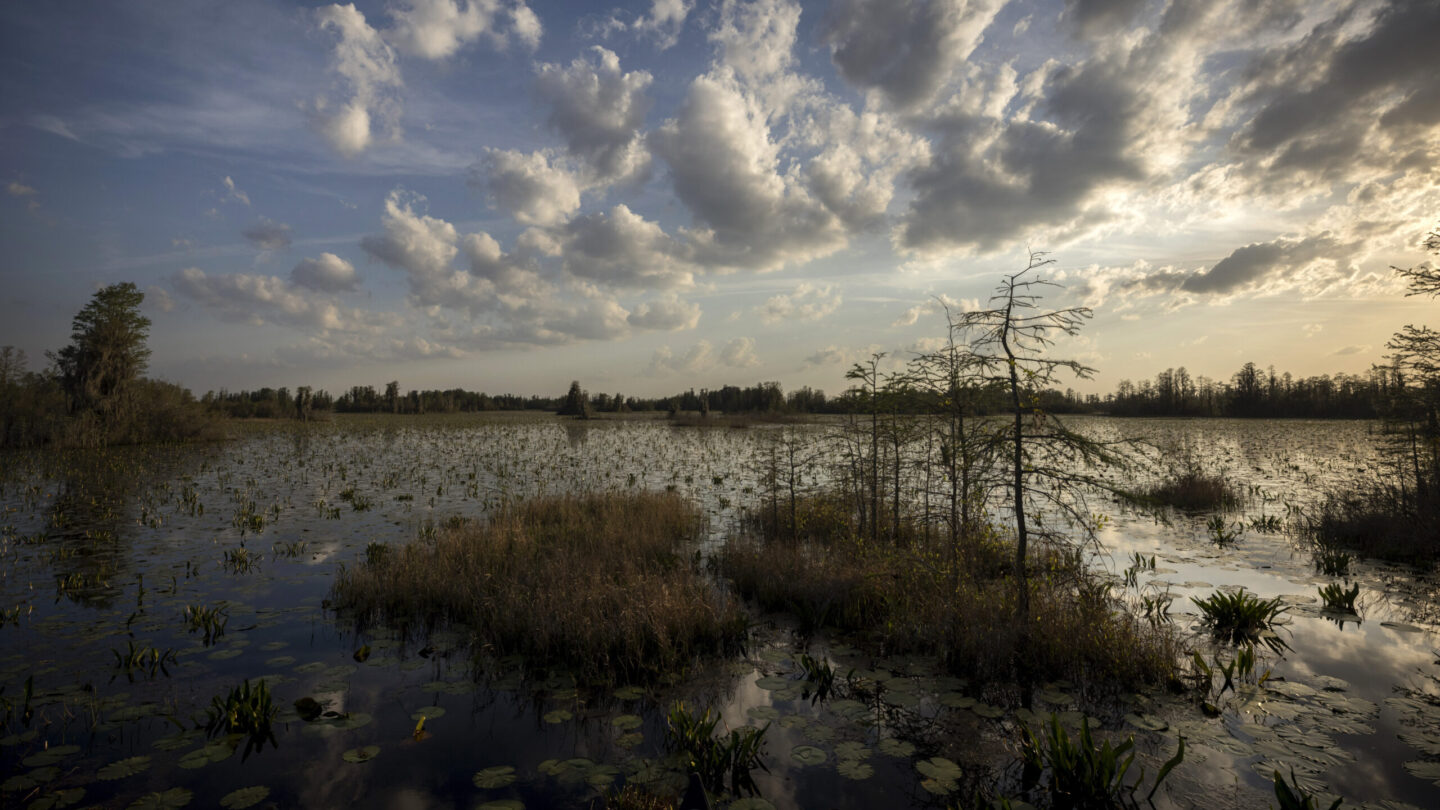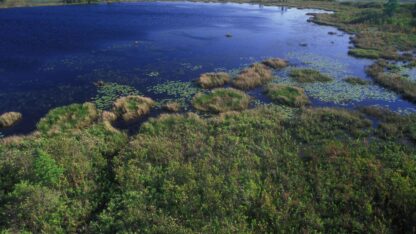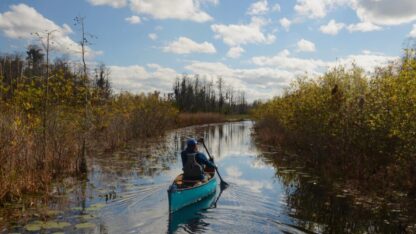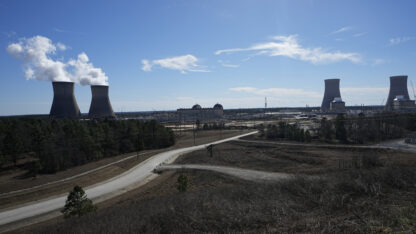Time runs short to comment on state permits to mine near Okefenokee as environmental groups blast plan

More than 70,000 comments have already poured into the state Environmental Protection Division as the public comment period wraps up on draft permits greenlighting mining near the Okefenokee National Wildlife Refuge.
Tuesday is the last day to submit a written comment on Alabama-based Twin Pines Minerals’ plans to mine Trail Ridge, which is seen as an important barrier for the swamp, for titanium, staurolite, and zircon. One of the permits would allow the company to withdraw 1.4 million gallons per day from the Floridan Aquifer.
The state regulatory agency, which issued the draft permits in February, will next review and respond to the comments on its website, although there is no set timeline for what comes next.
“If necessary, EPD will request changes to the draft permits,” agency spokesperson Sara Lips said Friday.
Supporters of the project say blocking the mining project would infringe on the landowner’s private property rights, and they have also argued the project will bring needed jobs to the rural area.
But the controversial mining proposal is deeply unpopular among admirers of the largest blackwater swamp in North America, which is home to a diverse ecosystem boasting of thousands of species of animals and plants.
Opponents have blasted the plan as an unnecessary threat to the hydrology of the swamp and its ecosystem that jeopardizes the local tourism economy tied to the swamp and opens the door to more mining.
On Friday, actor Leonardo DiCaprio joined the ranks of people opposing the project, calling on his 62 million followers on Instagram to submit a comment urging state regulators to reject the mine. He linked to a form letter on the Southern Environmental Law Center’s website.
“Help save one of the most significant wetlands on Earth from an 8,000-acre strip mine,” DiCaprio posted, referring to the potential scope of mining operations in the long term. These initial permits are for a 582-acre demonstration mine.
The Georgia Conservancy urged state regulators to reject the permits in its comment, which was submitted Friday. Short of that, the conservation group called for the state to add a condition to the permit that would head off an application to expand the project until data and real-world observations show that Trail Ridge can be mined without harming the refuge and nearby rivers and communities.
That waiting period should cover the timeframe for the mining operations from start to finish, plus at least three years for observation of groundwater and surface water level and quality, the group argued.
“If this project is truly a ‘demonstration,’ then sufficient time must be allowed for the project to demonstrate that mining can safely occur on Trail Ridge, adjacent to the Okefenokee Swamp, before any other Surface Mining Permit applications are accepted or considered,” the leaders of the Georgia Conservancy wrote in the comment.
The public comment period is ending more than a week after a legislative push to pass moderate protections for the swamp stalled in the state Senate. A Georgia House proposal called for a three-year moratorium on future applications for the kind of mining Twin Pines plans to do, although that was unlikely to affect the company’s long-term expansion plans. The proposed demonstration project has been in the works now for five years.
Legislative leaders rebuffed another measure that would have permanently blocked new or expanded mining permit applications at Trail Ridge.
Rena Ann Peck, executive director of the Georgia River Network, wrote in the organization’s formal comment that state lawmakers’ hands-off approach to the proposal and deferral to state regulators has left EPD as the “last line of defense for the cherished Okefenokee.”
“With the permittee’s ‘Ts’ crossed and ‘Is’ dotted, the Division is poised to issue a common permit that will do irreparable harm to the uncommon Okefenokee,” Peck said.
If EPD decides to issue final permits, Peck argued for more than the usual permit conditions, calling specifically for a detailed monitoring of groundwater and surface water before, during and after mining.
“The permittee must be held accountable for actions that harm the Okefenokee Swamp and St. Marys River,” she wrote.
This phase of the permitting process follows an earlier public airing of the company’s mining land use plan, which yielded nearly 79,000 comments. Both steps attracted dozens of people speaking in opposition at public hearings, including a three-hour one held last month where no one spoke in favor of the mining proposal.
This story was provided by WABE content partner Georgia Recorder.








